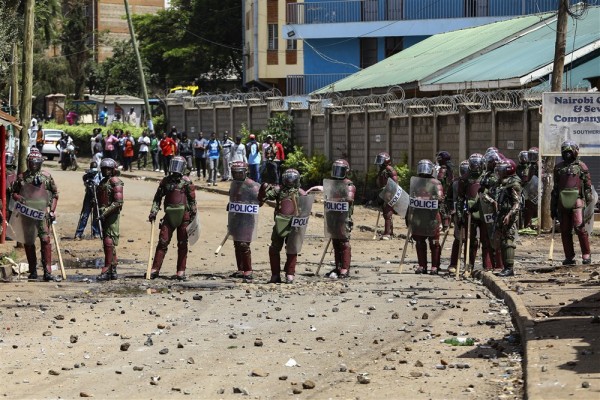The International Press Institute today expressed grave concern about legislation adopted on Oct. 31 by Kenya’s Parliament that would appoint a government tribunal to oversee the media and that would put in place restrictive fines and give the government control of who can practice journalism.
The Kenya Communications and Information (Amended) Bill of 2013 would penalize journalists and news organisations that breach the Code of Conduct for the Practice of Journalism that would be written by members of the politically-appointed Communications and Multimedia Tribunal.
Among other things, the tribunal would have powers to throw journalists out of the profession and impose fines up to 1 million Kenya shillings ($11,700 USD) for individual journalists and up to a maximum 20 million KHS ($234,200 USD) for companies who breach the code of conduct or the Communications and Information bill, according to reports in Daily Nation newspaper.
Under the bill, companies unable to pay the fines could have their property seized.
“It is inconceivable that a country standing so firmly on democracy and modernity would pass such a backward media law,” said Alison Bethel McKenzie, executive director of the International Press Institute (IPI), a global network of leading media practitioners. “The amendment to the Communications and Information bill will promote self-censorship – which one can only conclude is its ultimate goal – therefore restricting the free flow of information to Kenyans.”
Bethel McKenzie added: “We implore President Kenyatta not to sign the bill, which violates portions of Kenya’s constitution, when it reaches his desk and to engage with the media community instead in strengthening self-regulatory mechanisms.”
Media stakeholders from around the Kenyan capital of Nairobi are scheduled to meet this afternoon to discuss Thursday’s development, William O. Oloo, chair of the Kenya Association of Correspondents, told IPI today. Oloo is also regional coordinator for media freedom, advocacy and research for the Eastern Africa Journalists’ Association.
“It is bad,” Oloo said of Kenya’s amended media bill, which, he said, will have a chilling effect on journalists because of the possibility of hefty fines. “The media bill has passed and it is going to hurt media freedom very badly in this country. The media has been very aggressive on corruption investigations and most recently have questioned the handling of the Westgate Mall attack by security forces.”
Some government officials have accused Kenya media of a lack of patriotism and of jeopardizing state security in their coverage of the terrorist attack in September on a Nairobi Mall.
“The media will not be able to investigate anything and the citizens will not get information at all,” said Oloo. “And based on this, the police or other anti-media entities who want to hurt the media will be able to lobby the government, because where they feel unhappy they can go to the tribunal. So, in effect, we are getting back to the 1980s and ‘90s where the media could not operate and journalists were being killed and harassed. We are very unhappy about this.
“Our only prayer is that the president does not sign it. It would go against his own commitments when he pledged to uphold media freedom” earlier this year, said Oloo, adding that on a regional level, “it has really sent shock waves across the region. They are saying, ‘If Kenya, a beacon of press freedom, can do it like this, then we can continue the way have been doing it.’“
President Kenyatta, speaking before a group of media workers at a celebration of World Press Freedom Day this past May 3, was quoted by Capital News as saying, “Media freedom, including online media, today plays a dynamic role in the economic transformation of society. Some countries have benefited from such freedom in attracting foreign direct investments. My government will therefore prioritise media freedom. Further, my government will pursue and enact policies, initiatives and programmes to empower the media sector.”
He added: “I assure the media fraternity in the country that my government will support the media to be free, fair and responsible in conducting their business as provided for by our Constitution as well as international conventions to which Kenya is a signatory … Indeed, Kenya has set an example for Africa in terms of non- interference in media freedom. We will uphold this proud reputation,” pledged President Kenyatta.


